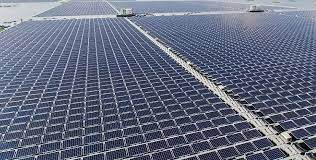World Leaders Call for Greater Investment in Renewable Energy at Global Summit

London— At the Global Renewables Summit on Tuesday, world leaders emphasized the need for increased investment in renewable energy to combat climate change, with developing nations urging financial support to transition to clean energy.
Kenyan President William Ruto highlighted the disparity in global renewable energy funding, pointing out that Africa, despite hosting 60% of the world’s best solar opportunities, receives less than 50% of global investment. He argued that unreliable and expensive energy sources hinder Africa’s development and called for more investment to fulfill the global pledge made at last year’s COP28 summit to triple clean energy capacity by 2030.
Barbados Prime Minister Mia Mottley echoed the need for financial equity, stressing that fossil fuel subsidies outweigh those for renewable energy, making it harder for small states to develop clean energy projects. “Small states face the reality that the cost of renewable energy will probably be higher than fossil fuels,” she said.
Reports, including one from the International Energy Agency, suggest that tripling global renewable energy capacity within this decade is achievable but will require strong regulations and significant investment in infrastructure such as transmission lines and battery storage.
Azerbaijan, the host of this year’s COP29 climate summit in November, announced plans to rally global governments to increase electricity storage sixfold.
Meanwhile, a coalition of major companies, finance institutions, and cities, known as Mission 2025, urged governments to adopt policies that could unlock up to $1 trillion in clean energy investments by 2030. These policies include setting new energy capacity targets and offering incentives like tax credits and long-term electricity contracts.
In a keynote address, U.S. President Joe Biden celebrated the success of his $369 billion climate law, the Inflation Reduction Act, passed in 2022. He praised its role in fostering innovation, creating jobs, and driving private companies to announce over $1 trillion in clean energy investments.
Biden declared, “We were told it couldn’t get done, and we did it… We are just getting started.”
Amid growing excitement around artificial intelligence (AI), some leaders voiced concern about the energy-intensive data centers required to support AI technologies. However, Andres Gluski, CEO of AES Corporation, highlighted AI’s potential in solving energy challenges, saying it could lead to better materials for batteries and help manage labor shortages and energy demand.

















Facebook Comments